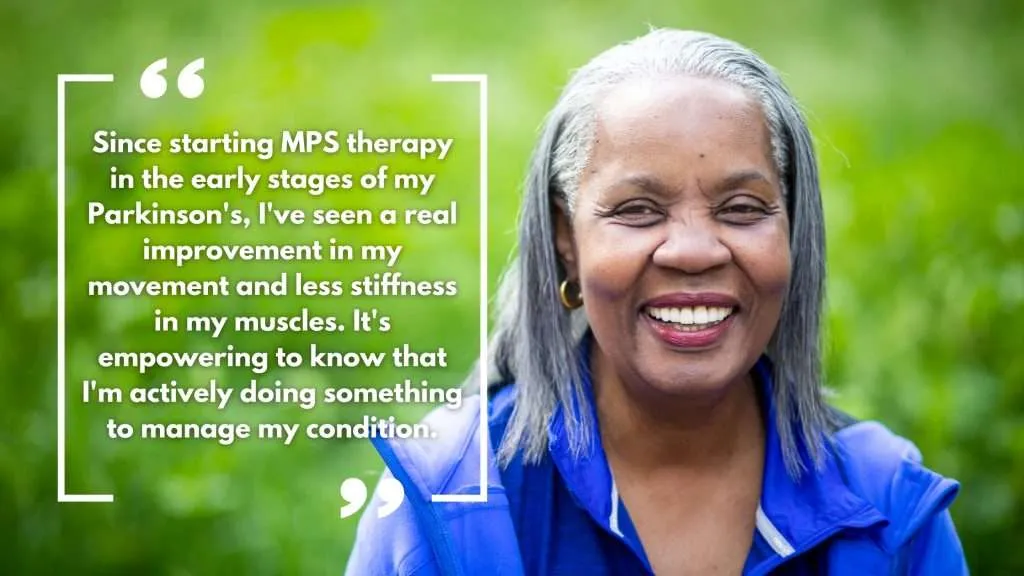Today we’re going to be talking about the five most common complications after total knee replacement surgery. Many TKR surgeries go well and everything works out fine. There can occasionally be complications during the recovery process so we want to take the time to address the five most common complications, how to identify them, and the best ways to treat them so that you can get the results from your surgery that will help you get active, stay mobile, and age stronger.
If you would prefer to watch an explanation of the 5 most common complications of a total knee replacement surgery, Dr. Wong recorded this awesome video that breaks down the concerns and solutions of each complication. You can watch it here:
Infections
The first complication that we’re going to talk about is infections. When you come out of knee replacement surgery, there are a few symptoms that might tell you that you might have an infection.
Symptoms of infection include fevers and chills, increasing redness and swelling around the knee joints, and/or increasing pain and smelly discharge from the incision site.
The good thing about infections is that it typically is very rare.
However, if you do test positive for infections there are three main treatments that most surgeons will do to get rid of it. The methods include antibiotics, washing the joint out, or, if those two methods don’t work, the surgeon might have to go back in and do a revision replacement surgery.
Antibiotics are primarily used when the infection is only on the skin’s surface and not deep within the actual joint. If the infection is deeper within the knee joint, they might need to open up the surgical sutures and wash the joint out.
If after four to six weeks of washing the joint out the infection continues, then the surgeon might have to go back in to take out the implant and do a revision replacement surgery.
Implant Failure
The next complication is knee implant failure. This is more uncommon than infections. Nevertheless, it can still happen and sometimes the bone just doesn’t heal properly around the implant.
In this case the surgeon will have to open you up and take the implant out to replace it with a whole new implant. Most surgeons will have a follow-up six to eight weeks after your surgery to take an x-ray to make sure the bone around the joint is healing correctly and that there is no defect.
Blood Clots
The third complication after total knee replacement are blood clots. Symptoms include increase in heat and excessive swelling around the knee joint and pain, with squeezing the calf muscle on the same side that you have the surgery.
The way your doctor will diagnose the blood clot is with a doppler ultrasound.
If you do test positive for a blood clot, the doctor might change your meds or recommend some compression stockings to help some of the blood circulate better.
Long-Term Stiffness
The fourth complication after a total knee replacement is long-term knee stiffness.
When you come out of knee replacement surgery it is normal to have stiffness in the beginning, due to post-surgical pain and swelling. After six weeks, you should have at least 90 degrees of knee bending or flexion.
If you don’t have the mobility at this point in time, your therapist should address either scar tissue or pain control.
Persistent Knee Pain
The fifth complication that many people suffer with after total knee replacement is persistent knee pain. This can be very frustrating, as most people get total knee replacement in the first place to get rid of pain and just be more functional.
Persistent knee pain can be caused by muscles and nerves around the new joint or even joints and muscles on the opposite side that are compensating because of the new knee that you currently have.
The best way to find out the root cause of your persistent knee pain is to connect with a physical therapist to get assessed. That way you can find out if it’s a muscle, nerve, joint or compensation problem and what to do about it.
Get Help With Your Recovery Before And After The Surgery
If you have any questions, please call tel:(281) 888-0047 and our team will give you the information you need to get clarity on your specific needs and situation so that you can make the best decision for your health going forward.
At Next Level Regenerative Physical Therapy we offer both prehab and rehab services so that you can go into total knee replacement surgery with less likelihood of complications, a faster recovery time, and more mobility and less pain over the course of the rehabilitation process.

MPS and Brain Health
MPS therapy is a special way to help our brains stay strong. It might also help with brain problems like Alzheimer’s and Parkinson’s, or when your brain feels foggy. By learning about how MPS therapy can make our thinking and body movements better, we can see how it can help keep our brain healthy.
Helping with Brain Problems
MPS therapy has been good for people with brain problems like Alzheimer’s and Parkinson’s. In Alzheimer’s, MPS can slow down the disease by helping the brain’s pathways and making them more flexible. By working on certain body points, MPS therapy aims to make blood flow better, help brain chemicals work better, and improve brain communication. This could slow down the loss of thinking skills.
People with Parkinson’s disease can also get help from MPS therapy. It can lessen problems like shaking, stiffness, and slow movement by helping the brain work better. MPS works on certain points to make the body release feel-good chemicals, which can improve movement and lessen muscle stiffness. Plus, MPS might help make more of the brain chemical dopamine and improve brain pathways related to movement. This can lead to better movement and a happier life.
Making Thinking Better
MPS therapy can also make thinking better. By working on certain body points, MPS can improve brain pathways involved in memory, attention, and thinking. This can lead to better focus, clear thinking, and overall better thinking performance. Research says that MPS might help lessen brain fog, a problem where people have a hard time thinking, focusing, and remembering. MPS therapy might make blood flow to the brain better, balance brain chemicals, and help the brain work best.
Keeping the Brain Healthy
Besides helping with certain problems, MPS therapy can also keep the brain healthy. By working on body points related to stress relief and relaxation, MPS can help lessen stress levels. High stress can hurt brain health and lead to loss of thinking skills. MPS therapy’s ability to relax, release feel-good chemicals, and control the nervous system can make the brain and overall well-being better.
MPS therapy shows a lot of promise in helping brain problems, making thinking better, and keeping the brain healthy. By working on body points, MPS aims to improve brain pathways, make them more flexible, and make the brain work better overall. As scientists keep studying the benefits of MPS, it’s becoming a very important treatment for people wanting to keep their brain healthy, manage brain problems, and improve their life.
Real Stories and Reviews
Real stories and good reviews show how Micropoint Stimulation (MPS) therapy can help with brain problems and keep the brain healthy. Let’s look at a few stories that show the good things people have seen with MPS.
Story 1: Anita – Beating Brain Fog
Anita is a teacher who was always feeling foggy in her brain. It was hard for her to focus and help her students. She was upset about her thinking getting worse and decided to try MPS. After a few tries, Anita saw a big improvement in her thinking. She could think clearly again and had an easier time focusing and understanding information. MPS therapy was very important in helping her get rid of her brain fog and making her thinking better. Because of this, she was able to do better in her personal life and at work.
Story 2: Bobby – Dealing with Parkinson’s Symptoms
Bobby used to work in finance and was diagnosed with Parkinson’s disease. He had shaking, stiff muscles, and trouble moving, which made his everyday life and being independent hard. He wanted a natural way to deal with his symptoms and decided to try MPS therapy. After some time, Bobby saw a big decrease in his shaking and stiff muscles. MPS therapy made his body movements better, making daily activities easier for him. Thanks to MPS therapy’s positive effects on his Parkinson’s symptoms, Bobby got his confidence and independence back.
Story 3: Mary – Early Stages of Parkinson’s
Mary, a retired math teacher, was in the early stages of Parkinson’s disease. Knowing that her symptoms might get worse, she decided to look for treatments. After talking to a health professional, Mary decided to try MPS therapy. With regular MPS sessions, Mary’s coordination got better, her muscles were less stiff, and she had better control over her movements. The therapy also made her feel good, knowing that she was doing something to help manage her condition. Mary’s good experience with MPS therapy showed the benefits of starting treatment early and the big difference it can make in life.
These stories show how Micropoint Stimulation (MPS) therapy can really help people with brain problems. By focusing on certain body points and making brain pathways more flexible, MPS therapy has shown it can lessen symptoms, make thinking better, and improve overall well-being.
It’s important to remember that everyone’s experience with MPS therapy might be different. It’s always best to talk to a health professional to find the best treatment for you. As more people share their good experiences and reviews, MPS therapy is becoming more known as a helpful tool for managing brain problems and keeping the brain healthy.

MPS at Next Level Regenerative Physical Therapy
At Next Level Regenerative Physical Therapy, our goal is to offer full care and new solutions to help with brain problems and keep the brain healthy. We include Micropoint Stimulation (MPS) therapy as an important treatment. Our team of skilled and experienced therapists are experts in giving MPS therapy. They make sure each patient gets personal and expert care.
Our therapists have years of experience and know all about MPS therapy and how it can help with brain problems. We look at the whole person and each patient’s special needs and goals. Then we make a treatment plan just for them. This plan includes MPS therapy and other treatments that have been proven to work.
When you come to Next Level Regenerative Physical Therapy, our therapists will take a close look at your specific condition. They will decide the best way to help you. If MPS therapy is right for you, our therapists will walk you through it. They will explain how the therapy works and how it can help you.
We take pride in creating a kind and supportive place where our patients feel at ease and sure in their journey to better brain health. Our dedicated team will be there for you. They will guide you, watch your progress, and change the treatment plan if needed to make sure you get the best results.
If you want to know more about MPS therapy and how it might help your brain problem, we invite you to come talk with our team at Next Level Regenerative Physical Therapy. Our experts will be happy to talk about your specific situation, answer your questions, and help you on the path to better brain health and overall well-being.
Take the next step towards better brain health by contacting us today to set up your talk. Together, we can see how Micropoint Stimulation (MPS) therapy can help you reach your goals of dealing with brain problems and making the brain work better.

